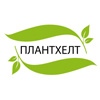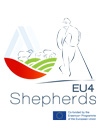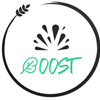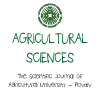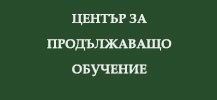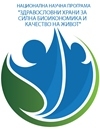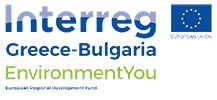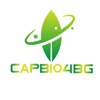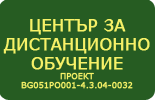In vitro induction of genetic diversity
|
Course title: |
In vitro induction of genetic diversity |
|
|
Course code: |
AFIVG |
|
|
ECTS: |
5 |
|
|
In-class hours |
Lectures: |
30 |
|
Laboratory work/Tutorials: |
30 |
|
|
Self-preparation hours |
Practical training: |
- |
|
Other: |
65 |
|
|
Total hours: |
125 |
|
|
Language: |
English |
|
|
Study cycle: |
Master, PhD |
|
|
Semester: |
Winter |
|
|
Faculty: |
Faculty of Agronomy |
|
|
Name of the lecturer(s): |
Assos. Prof. Bojin Bojinov, PhD |
|
|
Mode of delivery: |
Face-to-face |
|
|
Prerequisites: |
It is preferable learning students to have minimal knowledge of general and molecular genetics, biochemistry, microbiology and plant breeding. |
|
|
Learning outcomes of the course unit: |
The course aims to give future students new knowledge on issues related to the induction of greater genetic diversity in plants. The thematic content of the module is adapted to the specific requirements of specialization in plant biotechnology. Accents in the course are placed on the methods applied in modern studies to induce mutations and somaclonal and gametoclonal variation in the in vitro cultivation. Students get acquainted with the circumstances of cell culturing plant cells and explants exposed to mutagenic treatments. Carry out a parallel between somaclonal, gametoclonal variation and in vitro mutagenesis as sources of genetic diversity and their importance in the breading. In the course of training are monitored phases of the cell mutagenesis, methods for isolation of variant cell lines, and applied techniques to identify the main types of mutants and variants selected in vitro, and some methods for their production. Students acquire the basic theoretical and practical knowledge to work with mutagenic factors. |
|
|
Course contents: |
I. LECTURES 1. INDUCTION OF MUTATIONS ON WHOLE PLANTS LEVEL. Classification of mutagenic factors. Causes of mutation in plants. Types of mutations. Mutagenic effects in М1 and М2 generation. Nature, objectives and methods of mutation breeding. Characteristics of plants as an object to induce gene mutations. Approaches in selecting objects and mutagens for treatment. – 6 hours 2. INDUCTION OF MUTATIONS ON WHOLE PLANTS LEVEL. Applied techniques to induce mutations in pollinating, cross-pollinated and vegetatively multiplying plants. Improvement of different economic traits in plants through induced mutagenesis. Use of mutants and mutant lines in breeding programs. - 6 hours 3. SOMACLONAL VARIATION. Nature and significance. Methods for induction of somaclonal variation. Mechanisms of emergence. Gnetic nature of somaclonal variation. Application. - 4 hours 4. GAMETOCLONAL VARIATION. Nature and significance. Methods for inducing of gametoclonal variation. Mechanisms of emergence. Differences between somaclonal and gametoclonal variation and their application in remote hybridization in plants. - 4 hours 5. CELL MUTAGENESIS AND BREEDING. Nature and significance. Advantages and disadvantages of experimental mutagenesis in vitro, compared with mutagenesis on the whole plant level. Parallels between somaclonal, gametoclonal variation and cell mutagenesis. Phases in the induction of cell mutagenesis. Frequency of mutations occurrence and mechanisms. Methods for the isolation of variants and mutants. Mutation frequency. Mutants and variants, selected in in vitro culture. Importance for breeding. - 5 hours 6. DIRECT MUTAGENESIS. Characteristics and significance of the site directed mutagenesis. Factors affecting the yield of mutants. Used primers, vectors and enzymes. Site directed mutagenesis using one-and bichain vectors. Cassette mutagenesis. - 5 hours
II. LABORATORY PRACTICAL WORK 1. SEMINAR. Induced mutagenesis in various crops at the whole plants level. - 4 hours 2. SEMINAR. Use of somaclonal and gametoclonal variation in different crops. - 2 hours 3. SEMINAR. Cell mutagenesis - prospects and achievements. - 4 hours 4. Induced mutagenesis in plant tissue cultures. Chemical mutagenesis. Safety in working with chemical mutagens. Preparation of stock solutions. Plating source material for treatment. - 4 hours 5. Treatment with a chemical mutagen. Removal of mutagens and washing of tissues. Plating of induction medium. Decontamination. - 4 hours 6. Treatment of suspension cultures. Induction of suspension culture of Nicotiana sylvestris. Selection of mutants and variants from treated with chemical mutagen suspension culture. - 4 hours 7. Selection of mutants and variants using cell suspensions and liquid culture medium. Concentration of inhibitor. One- and multi-tier Selection. - 4 hours 8. Selection of mutants and variants using cell suspensions and solid agar medium. Concentration of inhibitor to the introduction of cells in the medium. Selection of mutants and variants by cell spreading on the surface of the medium. Selection of mutants and variants by introducing cells in the medium. - 4 hours |
|
|
Recommended or required reading: |
1. Fowler, J., Lou Cohen. Practical statistics for Field Biology, New York, 1992. 2. Sokal, R.. Biometry, Second Edition, 1981. 3. Hartl and Jones. Genetics. Jones and Bartlett Publishers 2000. |
|
|
Planned learning activities and teaching methods: |
Teaching methods will be presented by: - Lectures with presentations, - Dialogue methods (conversations and discussions) The course includes the following mandatory components: lectures, laboratory work, seminars, as well as student self-preparation. The lectures and laboratory practical works are supported by extensive literature and material basis. The lectures are delivered by means of PowerPoint presentations. The seminars take the form of a discussion between the students and the lecturer, with reference to pre-selected topics. The grading will conform to the 6-grade system. The results will be published no later than 2 days after the exam. |
|
|
Assessment methods and criteria: |
The course ends with a written examination. The latter includes a pre-defined set of questions, which is drawn from the course material. |
|
 - Събития по случай 80-я юбилей на АУ
- Събития по случай 80-я юбилей на АУ
